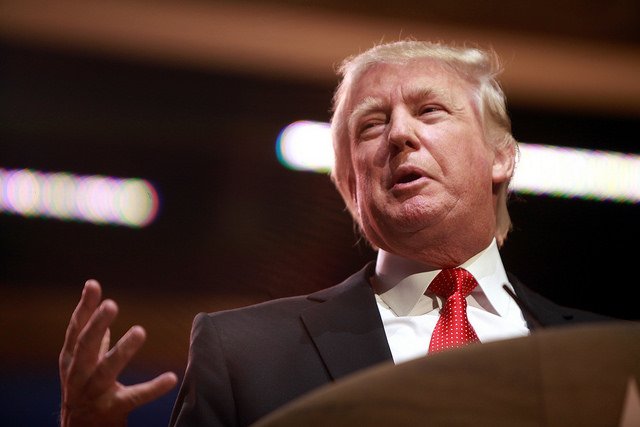
[dc]A[/dc]fter winning the majority of electoral votes last Tuesday, Donald Trump’s transition team is making plans to occupy the White House. What does this mean for religious liberty?
- Contraceptive Mandate cases will be rendered moot.
When the Obama administration implemented the Affordable Care Act, it developed regulations that required all organizations and employers to facilitate access to contraceptives to employees either through paying for them or, at a minimum for religious employers, provide notice that they did not provide contraceptive services and that employees could access them elsewhere.
The case of the Little Sisters of the Poor, a Catholic charity, reached the U.S. Supreme Court which issued a unanimous ruling in May suggesting a compromise and sending the case back to the lower courts to adjudicate. So far the lower courts have not acted.
Since the provisions were administrative regulations promulgated by the Obama administration, the Trump administration can reverse them with the stroke of a pen; an action Trump is expected to take.
If the Trump administration does not reverse the mandate, the matter may head back to the Supreme Court where Justice Scalia is expected to be replaced by a Trump nominee.
Under a Trump administration, the Hobby Lobby case would have likely never have reached the bench. However, the Court’s conclusion that a closely held private corporation can reflect the religious beliefs of its owner, even if they require an exception from generally applicable law, that ruling is expected to stand.
- The rights of religious minorities will need to be actively protected.
While a newly appointed U.S. Civil Rights Commission will likely abandon its recent report that said that religious freedom is equivalent to bigotry, members of the religious majority might take advantage of campaign rhetoric to claim that religious minorities can be marginalized have their rights taken away. For instance, people should be concerned about whether Trump follows through on his campaign promise to register Muslims and use religion as criteria for filtering immigrants.
As a candidate, Trump spoke and tweeted as if he believed that the Executive Branch had the prerogative to steamroll over the rights of religious minorities. While it is not quite that simple, the increase in executive power over the past few Presidents will give Trump significant power from day one. It will be incumbent on members of the faith community to be on the alert for governmental incursions into the religious liberty of minority adherents, and to be willing to speak truth to power when necessary.
Unfortunately, the temptation for those in the religious majority will be to remain silent or even to encourage the administration to abandon the protection of minority rights. Defending religious minorities will always be unpopular in some circles, but it will be increasingly necessary over the next few years.
- Politicking from the pulpit will likely still be prohibited
Although Trump has argued for the abandonment of the Johnson Amendment, which prohibits non-profit organizations from campaigning for or against particular candidates, it is not likely to be rolled-back, at least during the first term of the Trump administration. Many religious organizations were relatively transparent about their dislike of Trump during the campaign, and turning pulpits into a free-for-all of political support or opposition will likely be counterproductive if Trump wants to win a second term. Further, on an anecdotal note, many pastors have privately expressed how thankful they are that the law requires parishioners to leave their respective political views at the door and worship together. There is so much political antipathy that an hour of silence on the political front is golden. Clergy and parishioners alike can campaign privately so long as they are not doing it under cover of their non-profit organization.
These are just a few of the several issues that are expected to arise in the near future, and we will continue monitoring the issues as they develop.
###
Photo: Gage Skidmore – CC 2.0 – Donald Trump speaking at the 2014 Conservative Political Action Conference (CPAC) in National Harbor, Maryland.
Holding: A unanimous Supreme Court suggested a compromise on the contraceptive mandate requiring religious employers to provide notice of non-coverage.
Holding: Religious liberty protections under RFRA apply to closely held for-profit corporations.

